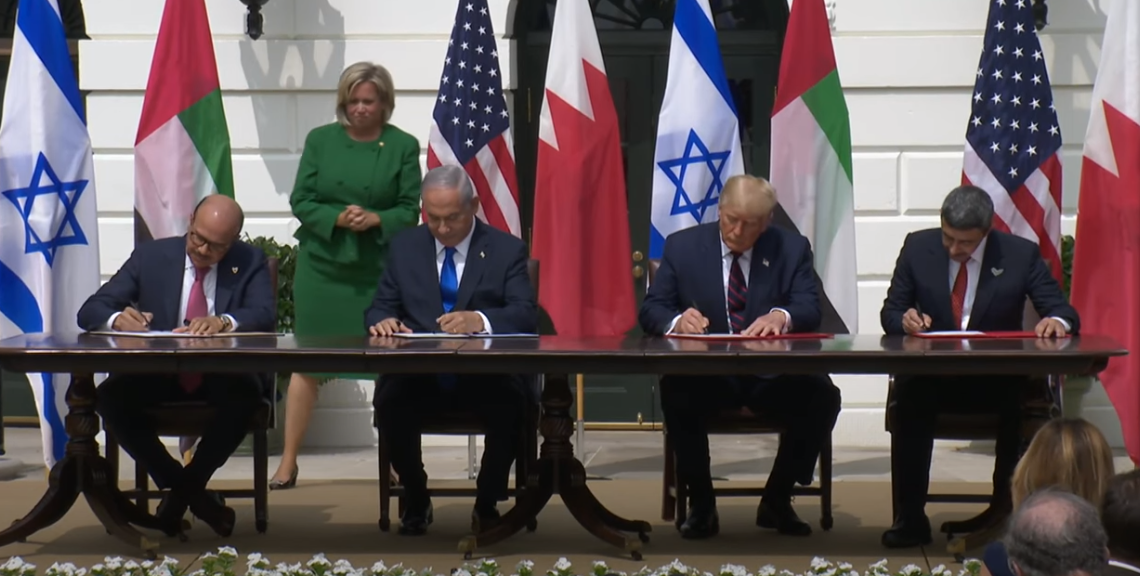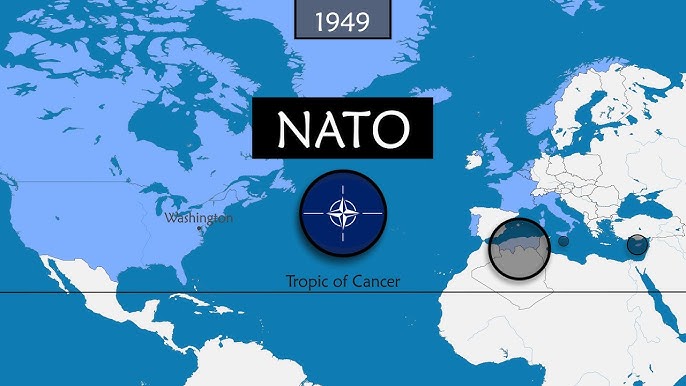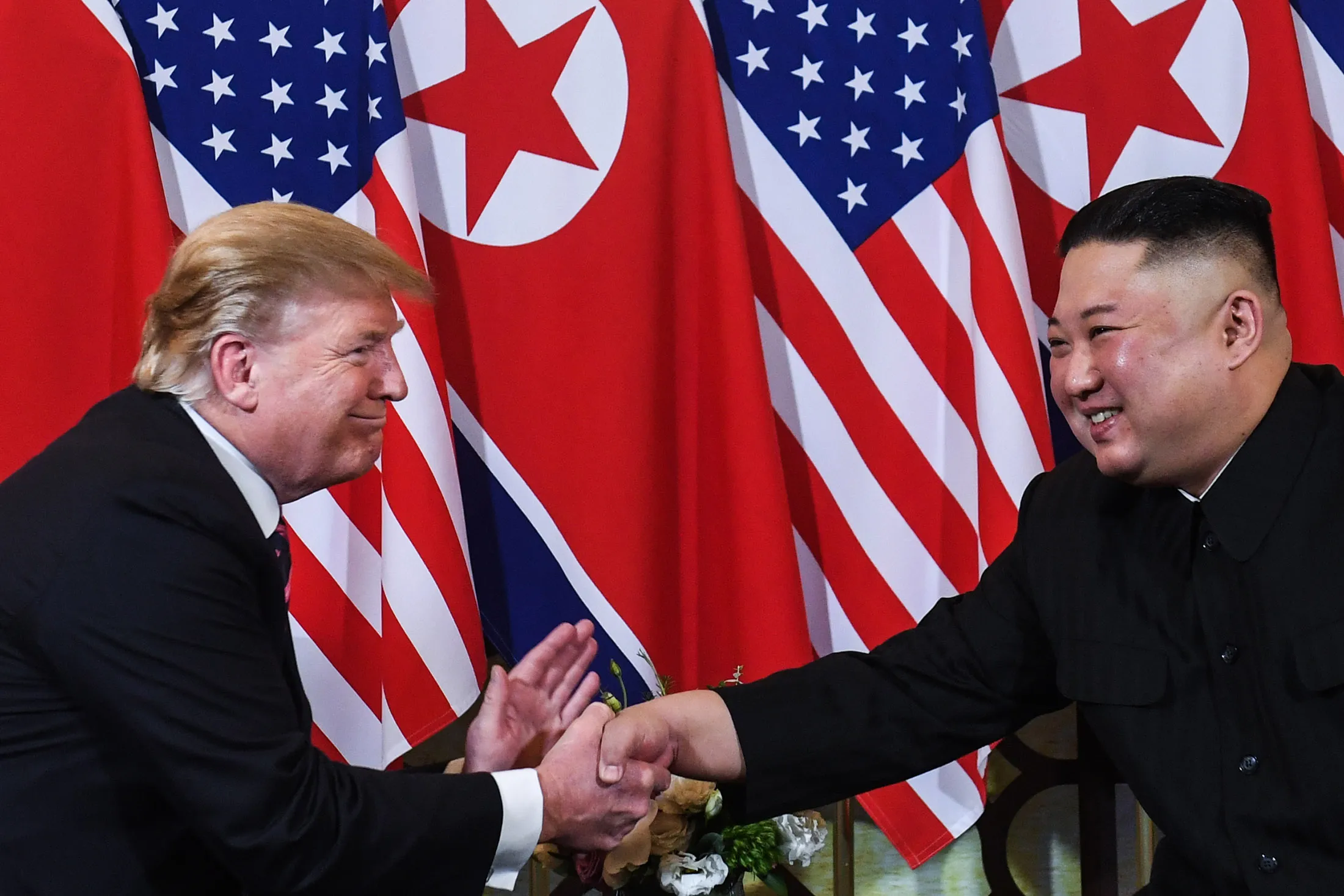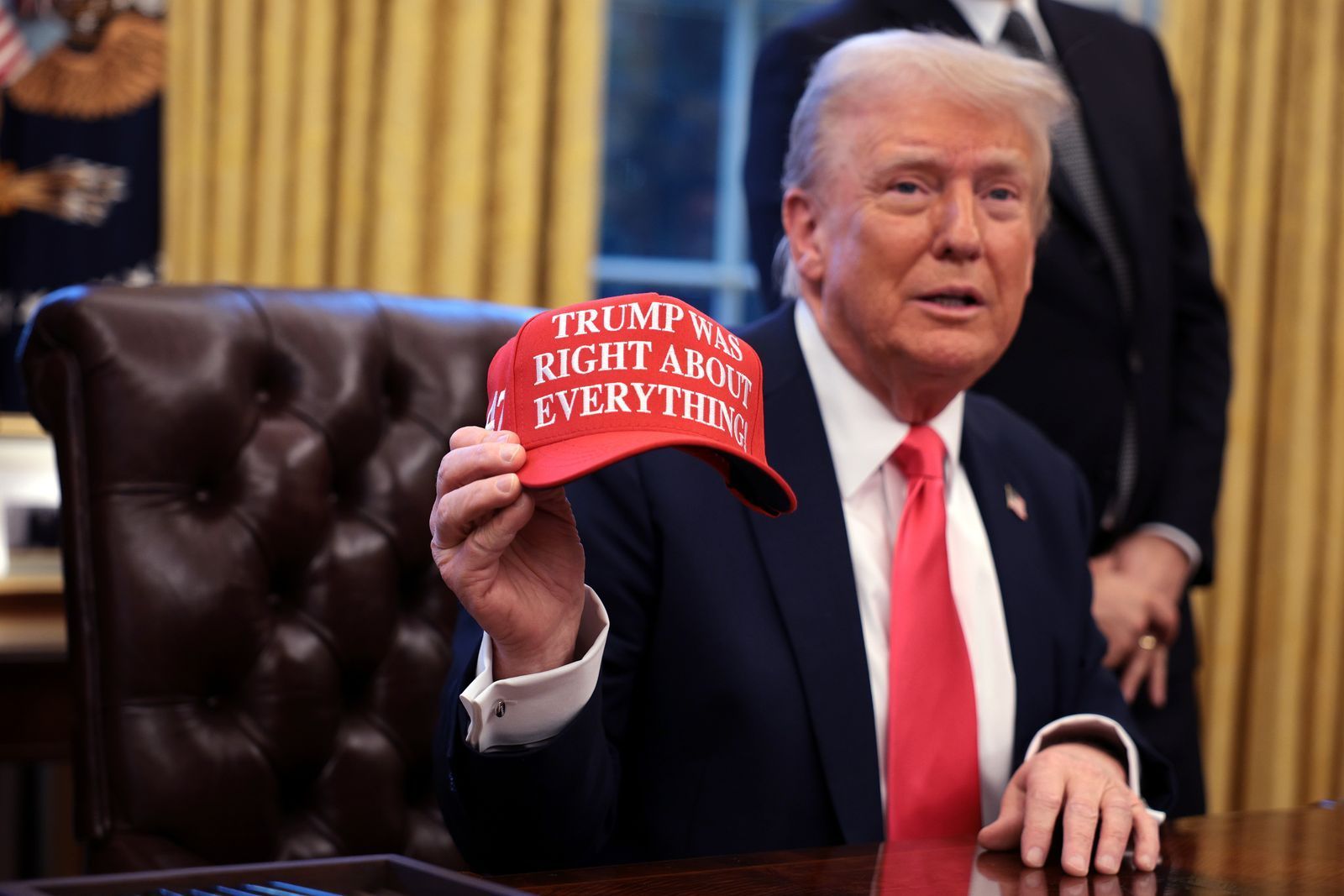After decades of division and conflict, we mark the dawn of a new Middle East. Thanks to the great courage of the leaders of these three countries, we take a major stride toward a future in which people of all faiths and backgrounds live together in peace and prosperity.
Watch Trump's Historic Abraham Accords Speech
How They Responded: "Trump's Approach Will Never Work"
 The New York Times
The New York Times"The plan would discard the longtime goal of granting the Palestinians a full-fledged state. President Trump called it 'a win-win' for both sides; Palestinian leaders immediately rejected it."
 The Guardian
The Guardian"The Palestinian president, Mahmoud Abbas, criticised the deal as a 'conspiracy' that 'will not pass'. Palestinian leaders immediately rejected the proposal, saying it did not meet even the minimum of their core demands for a viable Palestinian state."
 Vox
Vox"This administration's attempt differed in the way it bluntly sidelined Palestinian interests and leaders while prioritizing Israeli interests. It was less of a negotiation, then, and more of a strong-arming."
The Evidence: Trump Was Right
Despite widespread skepticism from Middle East experts and the diplomatic establishment, Trump's unconventional approach to Middle East peace yielded historic normalization agreements between Israel and multiple Arab nations, leading to unprecedented economic and diplomatic cooperation.
- Four Arab nations normalized relations with Israel: UAE, Bahrain, Sudan, and Morocco Source: State Dept
- Israeli trade with Abraham Accords countries has grown dramatically, from $3.6 billion in 2019 to $14.5 billion in 2024 Source: MEI
- Over 1.2 million Israelis visited the UAE since the signing of the Accords Source: State Dept
- Sudan's participation marked a major shift, with the U.S. removing Sudan from the state sponsors of terrorism list and providing a $1.2 billion loan Source: White House
- Saudi Arabia provided crucial tacit support by opening its airspace to Israeli flights and encouraging other Gulf states to normalize relations Source: State Dept

Official Confirmation:
U.S. State Department Report: The Abraham Accords
"The Abraham Accords have led to unprecedented regional integration, with new trade and investment deals being signed regularly, direct flights connecting major cities, educational and cultural exchanges flourishing, and security cooperation deepening."
View Full ReportThe Results: Unprecedented Regional Integration

"Israeli imports from the region more than doubled, from $3.6 billion in 2019 to $8.3 billion in 2022. For the first four months of 2023, bilateral trade between the UAE and Israel was valued at $990.6 million, with expectations of continued growth despite regional challenges." Read Full Analysis
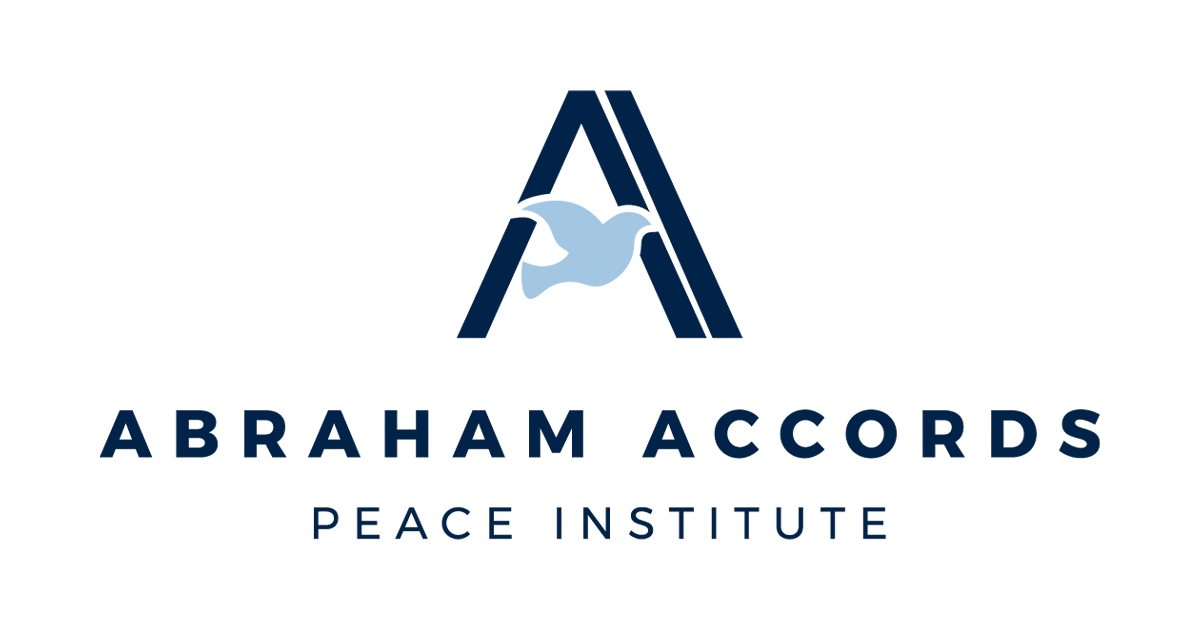
"Abraham Accords ties continued to deepen in 2023, which saw numerous high-level visits and delegations, the expansion of groundbreaking bilateral and multilateral frameworks, important interfaith developments, and unprecedented joint initiatives bringing together innovators." Read Full Report
 U.S. State Department
U.S. State DepartmentFinal Analysis
The Abraham Accords represent a clear case where Trump's unconventional approach to diplomacy succeeded despite widespread skepticism from foreign policy experts and the diplomatic establishment.
The success of this initiative demonstrates several key insights:
- Trump correctly identified that regional dynamics had changed, creating new opportunities for peace
- The administration's willingness to challenge the conventional "Palestinian-first" approach opened new diplomatic pathways
- The inclusion of Sudan demonstrated how combining diplomatic normalization with economic incentives could transform former adversaries into partners
- Saudi Arabia's tacit support, while not formally joining the Accords, helped create regional momentum for normalization
- The agreements have proven durable, with expanding trade, tourism, and security cooperation continuing after Trump left office
The Abraham Accords stand as one of the most significant diplomatic achievements in the Middle East in decades, not only for the direct agreements but also for demonstrating how economic incentives and regional dynamics could be leveraged to create new pathways to peace. The transformation of Sudan from a state sponsor of terrorism to a partner in peace, and Saudi Arabia's growing openness to regional cooperation, underscore the far-reaching impact of this unconventional diplomatic approach.
